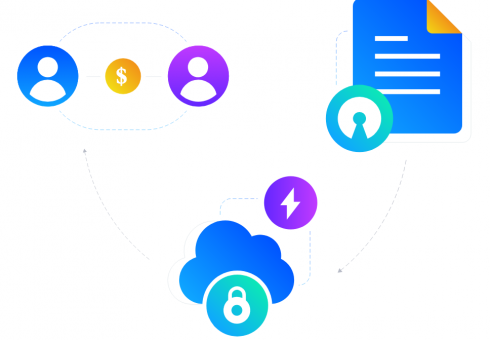
Storj Labs announced a new Open Source Partner Program this week designed to generate revenue for open-source projects and companies. The way the programs works by generating revenue as users of open-source partner software store data in the cloud, Storj Labs explained.
This new program can be looked at as an open source and cloud alliance. “Traditional cloud infrastructure requires massive capital investment to build data centers. The cloud companies compete on the basis of huge economies of scale and (generally) narrow gross margins. And, they drive demand through fairly expensive sales & marketing, frequently using Open Source Software as a loss leader to drive revenue through infrastructure usage,” Ben Golub, Storj Labs executive chairman and interim CEO, wrote in a post.
However, a decentralization infrastructure, which Storj provides, doesn’t require a lot of power, bandwidth or people, Golub explained. Storj aims to provide secure and private cloud storage at an affordable price without the need to operate on centralized data centers. It features segmented and distributed files, S3 compatible gateways and open-source components.
“Decentralization also presents the opportunity for a different approach to building demand,” Golub wrote. “Since open source basically drives all demand to the existing public cloud, why not provide a direct mechanism and incentive for open source projects and companies to drive demand to our network, compensating those projects and companies directly as they help us build demand?”
The program is being launched in conjunction with 10 partners: Confluent, Couchbase, FileZilla, InfluxData, MariaDB, Minio, MongoDB Nextcloud, Pydio and Zenko. Revenue is earned every time end-users store data on the Storj platform. It can be earned through new user referrals or incremental cloud storage use.
“Our Open Source Partner Program will help open source companies to remain open and free and invest in growth,” Golub wrote. “It will also enable them to achieve more within their budgets, supporting them in becoming profitable, accelerating roadmaps or meeting other financial-related goals. And, it should do so without trying to demonize existing players or requiring unnatural acts with regard to licensing Ultimately, open source companies – even the ones that only provide free products – require revenue to sustain themselves, and the Storj Open Source Partner Program can help.”
In addition, program partners will get access to the company’s V3 Storj network that entered private alpha this week.





